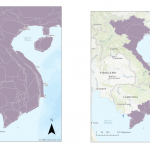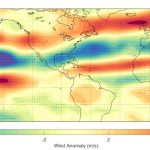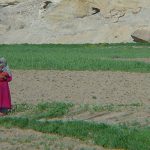
Two years ago in Paris, the world agreed that we need to keep the planet from warming more than 2°C. The Paris Agreement further argues pursuing efforts to limit it further to 1.5°C below pre-industrial levels. This daunting task of addressing climate change requires a two pronged approach of mitigating greenhouse gas emissions and adapting to the already changing climate.

I’ve loved video games my entire life. Role-playing, survival, platform, strategy, sports—if it’s playable, I’m (virtually) there. Video games are often considered a distraction from the real world, but they may have more in common with life on this side of the screen than you think.

When it came to finding data for many of my projects, I was a spoiled. All I had to do is visit International Research Institute for Climate and Society (IRI) Data Library, select the product and region I was interested and hit download. But that all changed this summer during my internship at the IRI with Pietro Ceccato.

Climate change is a global problem, and yet its effects and people’s ability to adapt are inherently local. Given this mismatch in scales, how can continental-scale research take local perspectives and differences into account? Additionally, how can research at a continental scale provide useful information for local climate adaptation strategies?

The idea of impact investing was born in part at the intersection of climate change and sustainable development. It is an innovative approach that leverages financial tools to achieve sustainability and doesn’t focus solely on the potential financial returns on any investment.

Words matter. How we read, define and share information has a massive impact on our lives. Everything from ordering lunch to driving a car runs more smoothly when we all agree—or at least understand—what something means.

As the world’s population increases, it will put more pressure on food resources. That makes it more important than ever to have accurate weather predictions that can help increase productivity.

After this whirlwind of a year at C+S, I have made a resolution to be more present online and engage with more diverse audiences. Why would I want to crawl into the trenches of a raging cyberwar?

Extreme events like droughts and floods are projected to become more common in a changing climate. As they do, their effects on agriculture, health and infrastructure will disproportionately impact those who already have limited socio-economic resources. For this reason, several organizations focused on international development have started to consider climate change projections in their projects and operations. Their goal is to avoid increasing the development gap.

Humans desire for certainty is rooted in the way our brains function. We are programmed to create patterns from our outside world, store them as memories and make predictions. It is the primary function of our neo-cortex.













